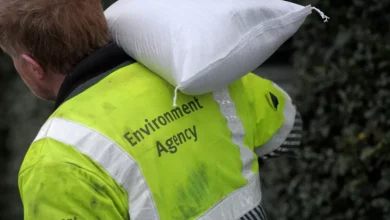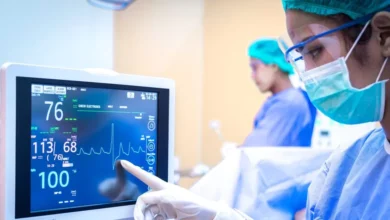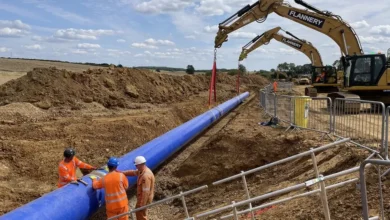Former athlete struggling to walk get treatment to save kidneys

Zuhair Alattari, a Palestinian living in the UAE, had been suffering from severe pain in his back and legs for nearly seven years and could barely walk. The former athlete also had persistent high blood pressure and sleep issues. Visits to several hospitals did not help his condition at all.
Finally, it was at Thumbay University Hospital in Ajman where Zuhair could find out what his symptoms meant — he had an advancing kidney disease and a shrunken right kidney.
While people are widely aware of use of stents for treating heart diseases, they hardly know of a similar, lesser-known procedure meant for kidney issues. It is called renal angioplasty, and it treats renal artery stenosis or narrowing of the blood vessels of the kidneys.
For 57-year-old Zuhair, renal angioplasty became a lifeline.
“I could barely walk due to the persistent pain in my leg, which affected both my work and personal life. Simple tasks like going to the mosque or to market became incredibly challenging. People didn’t understand why I could walk for half an hour but then needed four hours of rest to walk again. I used to be a good sportsman and a silver medalist in the UAE running championship, but now I could hardly go for a stroll,” said Zuhair, who works as the acting vice-principal at Al Aqsa School in Ajman.
Over time, the pain spread to both his legs, and Zuhair, who has been a resident of the UAE for the past 45 years, experienced back pain, weakness, and high blood pressure, particularly during the pandemic. “My blood pressure was so high that I couldn’t sleep, and I had to carry my medication with me everywhere because it would spike, and I needed to take medicine to function.”
When he sought medical evaluation at Thumbay University Hospital, Zuhair discovered that his hypertension was not solely due to medication resistance. Further diagnostic investigations revealed underlying issues in his kidney.
Explaining Zuhair’s case, Dr Rajaram Jagdale, consultant nephrologist, Thumbay University Hospital, said, “Initially we diagnosed him with a shrunken right kidney, and further investigation revealed bilateral renal artery narrowing, silently progressing over time. Despite normal kidney size just three years ago, both his kidneys were now became affected, with Zuhair’s renal function reduced to critical levels. Treatment via renal angioplasty for the left kidney became imperative to restore blood flow and mitigate further drop in kidney function.”
Dr Jagdale said it is a condition where the arteries supplying blood to the kidneys become narrow, which can lead to high blood pressure and kidney damage.
For Zuhair, the renal angioplasty procedure, which involved widening the narrowed arteries, was crucial. “During the procedure, a catheter with a deflated balloon at its tip was inserted into the narrowed renal artery. The balloon was then inflated, widening the artery and restoring proper blood flow to the kidneys. In some cases, a stent was placed to help keep the artery open. One of his kidneys had already suffered irreversible damage from a blocked blood vessel, while the second was at risk but still in a reversible stage. By doing this procedure, we were able to save the kidney that wasn’t yet damaged, preventing further deterioration that could have occurred over the next few months or a year,” said Dr Jagdale.
“He is now responding well with his remaining functional kidney. Had his condition been left untreated for a few more months, he would have lost both kidneys and eventually required dialysis,” added Dr Jagdale.
After undergoing angioplasty on his left kidney, Zuhair experienced a notable improvement in his health.
“Within a mere 24 hours, his blood pressure levels normalised, necessitating a drastic reduction in hypertension medications from five to just one within 24 to 48 hours. Furthermore, his creatinine levels, which had previously soared to 2 milligrams, improved significantly to 1.6 milligrams post-procedure, with the potential for further improvement during follow-up visits,” said Dr Jagdale.
Post-surgery, Zuhair no longer needs to carry his medications around as his blood pressure is under control. “Now, I can also finally eat my favourite meals, such as those high in salt that I had to avoid before. I sincerely appreciate the superb care and assistance I received from the physicians,” he said.










